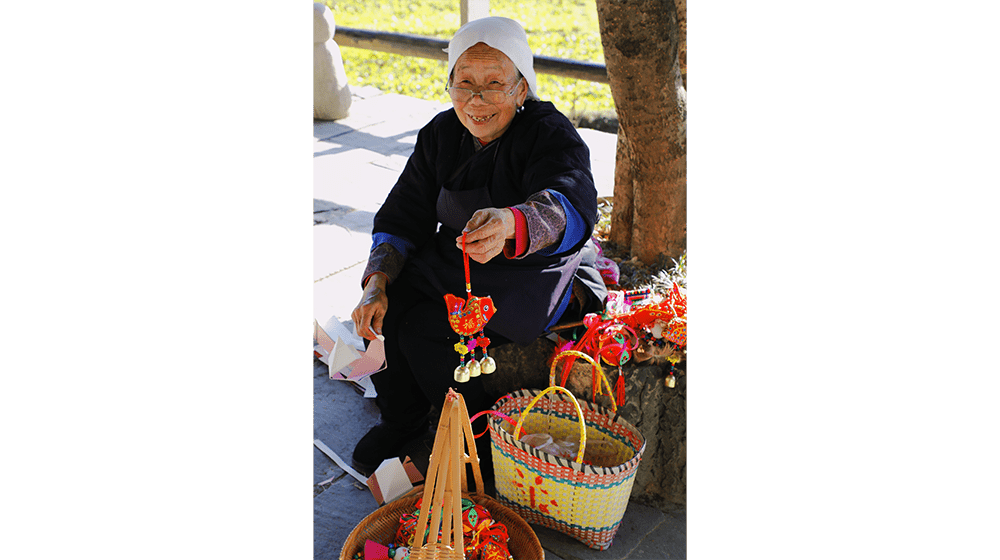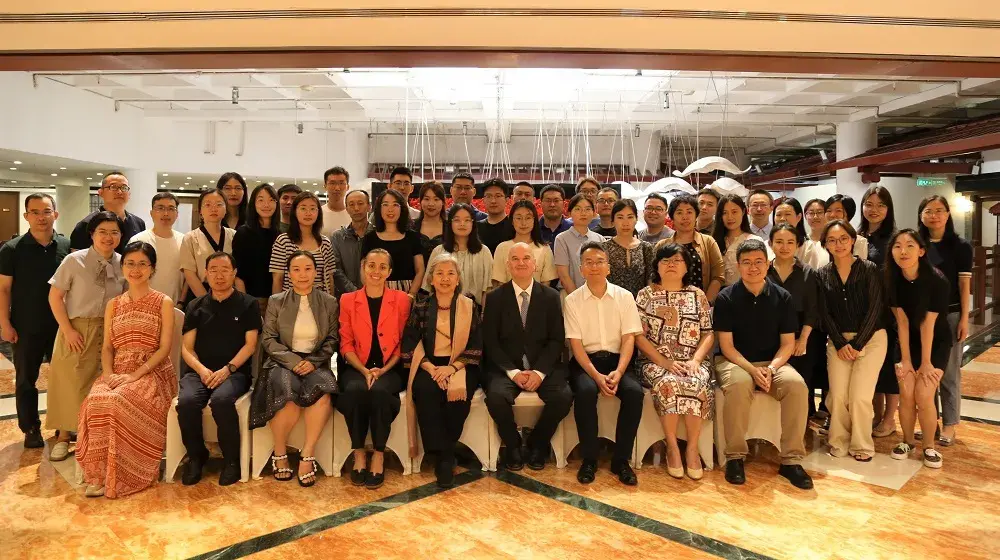SHANGHAI, China, 5 November 2022 -- The United Nations Population Fund (UNFPA), the National Development and Reform Commission (NDRC), and the Ministry of Commerce (MOFCOM) of China co-hosted a parallel session “Opportunity Sharing for Global Ageing” at the fifth Hongqiao International Economic Forum in Shanghai on 5 November.
As part of the annual China International Import Expo, the Hongqiao International Economic Forum brings together global experts to discuss common development issues affecting the international community. With this parallel session, the forum addressed global ageing for the first time recognising that 1 in 7 of the world’s population is currently aged over 60 and this number is set to rise to 1 in 5 by 2050.
“Population ageing is a new topic and a global trend in the history of humanity. The definition and concept of older people is evolving while the economy, society, science and technology are progressing. As long as the forward-looking research and systems are well in place, we do not need to worry about it too much,” said Mr. Jiang Zhenghua, Vice President of the 9th and 10th National People’s Congress Standing Committee of China.
“This generation of older people is educated, healthier and wealthier than ever before. Rather than seeing ageing populations as simply a problem, we need to recognise that older people can be both beneficiaries of and active participants in sustainable development,” added Ms. Diene Keita, UN Assistant Secretary-General and Deputy Executive Director of UNFPA.
Ms. Diene noted that to achieve a “longevity dividend”, countries need to invest in the health, wellbeing and continuing education of older people, as well as ensure socio-economic development is inclusive of their needs and rights, especially the specific needs of women, from her childhood, through adolescence, and her reproductive years, and into older age.
Mr. Lian Weiliang, Vice Minister of NDRC highlighted that the Hongqiao Forum offers an open platform for the local and international communities to “join hands to explore the development potential of the silver economy, and promote international dialogue and cooperation.”
With about 200 participants from public and private sectors and civil society, the presentations focused on international approaches to population ageing and identified the most effective pathways to developing the silver economy and investing in and engaging older people to achieve inclusive and sustainable growth and development.
China launched the “2022 Index of Chinese City Capacity to Actively Respond to Population Ageing” at the event. An ambitious undertaking, the index measures different aspects of ageing support across 337 cities including age-inclusive policies, levels of investment, age-responsive services, enabling social environments and the development of the silver economy. The index will not only measure progress but also guide city-level socio-economic development initiatives to ensure they are fully inclusive of the needs of older people.
Dr. Justine Coulson, UNFPA’s Representative in China committed “to continue working with our national partners and the international community to identify effective, evidence-based policy and programme solutions that respond to the needs of older people both as individuals and as a demographic cohort in order to support sustainable social and economic development.”




